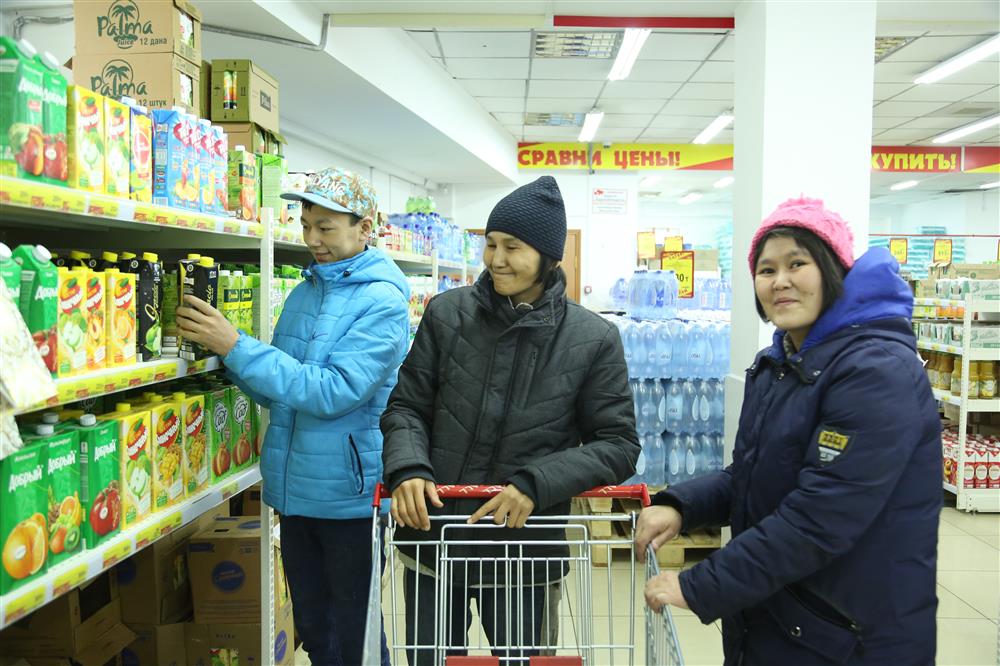A Home, a Cafe and Employment to Promote Deinstitutionalization
- Solution
- SIL programme
- Organization
- Psychoanalytic Association
- Country of Implementation
- Kazakhstan
- Region
- Asia & Pacific
- Subregion
- CIS and Associated States
- Start Year
- 2016
- First published
- 31.01.2019

Solution details
“We give our beneficiaries security and a safe place to treat their wings, and then we teach them to fly.” —Khudiyarov Bakytzhan, CEO, Psychoanalytic Association
In 2016 the Psychoanalytic Association, a Kazakhstan NGO, began a supportive independent living (SIL) programme in the Almaty region to help people with intellectual disabilities move out of closed institutions. To this end, the organization set up a Training Café, employing ten people with psychosocial disabilities who had been living in closed institutions. As of 2018, the Psychoanalytic Association oversees six group homes, two cafés, and 20 employed beneficiaries, all of whom now live on their own. In addition, three women and two men were returned their legal rights.
Problems Targeted
The Kazakhstan legislature provides no alternative to residential institutions for people with intellectual disabilities. Further, psychiatry-based facilities have inadequate rules and standards, as well as few trained professionals to implement supportive independent living.
Solution, Innovation and Impact
For Kazakhstan, supportive independent living is a new concept. In 2012 the government began to implement a plan of deinstitutionalization, and the Psychoanalytic Association is one of two NGOs providing SIL for Kazakhstanis living in closed institutions – the result of a policy change within the Department of Employment and Social Services. The pilot project aims to move 60 people with intellectual disabilities out of closed institutions, provide them with employment and teach them such life skills as how to buy groceries, pay utilities and save money. Beneficiaries include 20 people who have left psychiatric institutions to be part of the pilot, while more than 230 people still in institutions are receiving training and legal support as a preparatory step to SIL. The first Training Café began with ten employees with psychosocial disabilities while still living in institutions. In 2018, the NGO was overseeing six group homes, two cafés and 20 employees – ten of whom cover most of their own expenses. Another dimension of the programme is to advocate for people stripped of their legal capacity. Of six ongoing cases, five people have had their legal rights returned to date.
Funding, Outlook and Transferability
The initial pilot project was supported by the Soros–Kazakhstan Foundation. Starting in 2017, the Department of Employment and Social Services agreed to finance the programme until it becomes a fully government-based social services provision. Today, the Psychoanalytic Association programme is partially self-sustaining, with social entrepreneurship in the training cafés helping the beneficiaries to earn a living. The organization also gets income from selling services to mental health professional such as training in SIL and supportive employment techniques. The Psychoanalytic Association programme is currently operational in the cities of Almaty and Astana. The government is revising the national Standard of Special Service Provision.
Media
Pictures
Videos
Downloads
Life Story
THE STORY OF GULNAR, A SUPPORTIVE INDEPENDENT LIVING BENEFICIARY
“I have my own place to live, I have work, and I am independent.”
My name is Gulnar. I graduated from university and became a nurse, but one day a little patient of mine died. That was when I had a breakdown and was put into a psychiatric hospital. Then my sisters deprived me of my legal capacity, and I was placed in an institution for many years. I couldn’t work, could not choose what to eat or buy, could not even go out. I felt like a prisoner. One day I got an offer from my legal guardian: “Hey, would you like to be part of a project that would allow you to be out and independent all day?” Well, of course I said “Yes!” After a short training I started to work as a waitress. Then I become a chef. In 2016 the NGO Psychoanalytic Association said, “We are planning to take ten people from the institution and provide them with living accommodations. We don’t know how and when we will do it, but we need your support.” I like the way the NGO staff worked with us: Nothing about us without us! Since 2017, I have had my own place to live, I have work, and I am finally feeling free and independent.
Related information
- Connections
- 2
-
Organization
- People